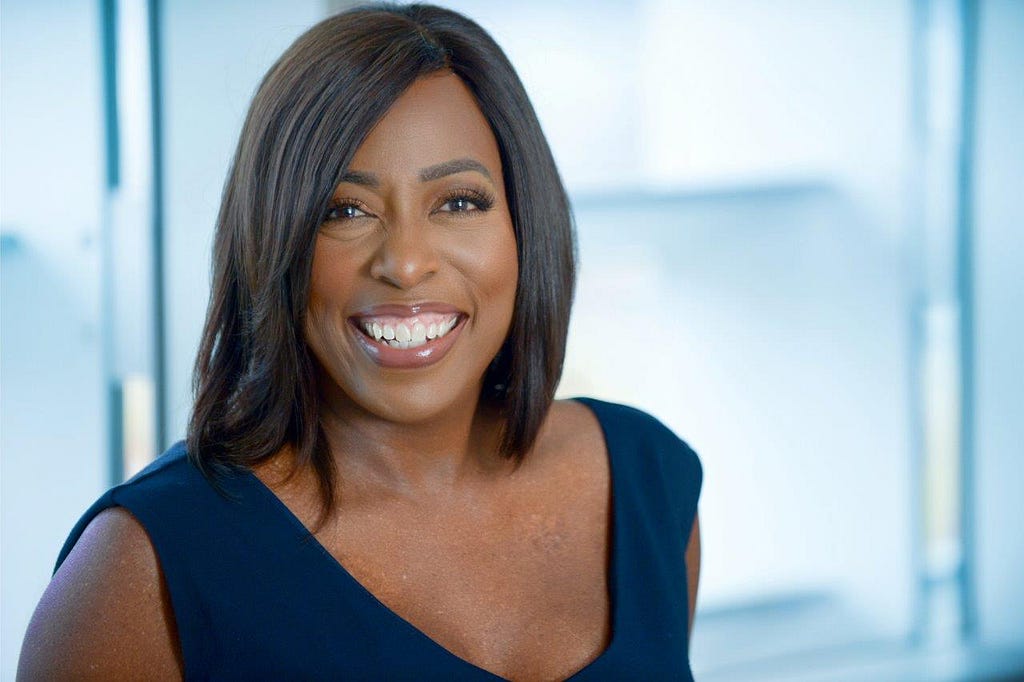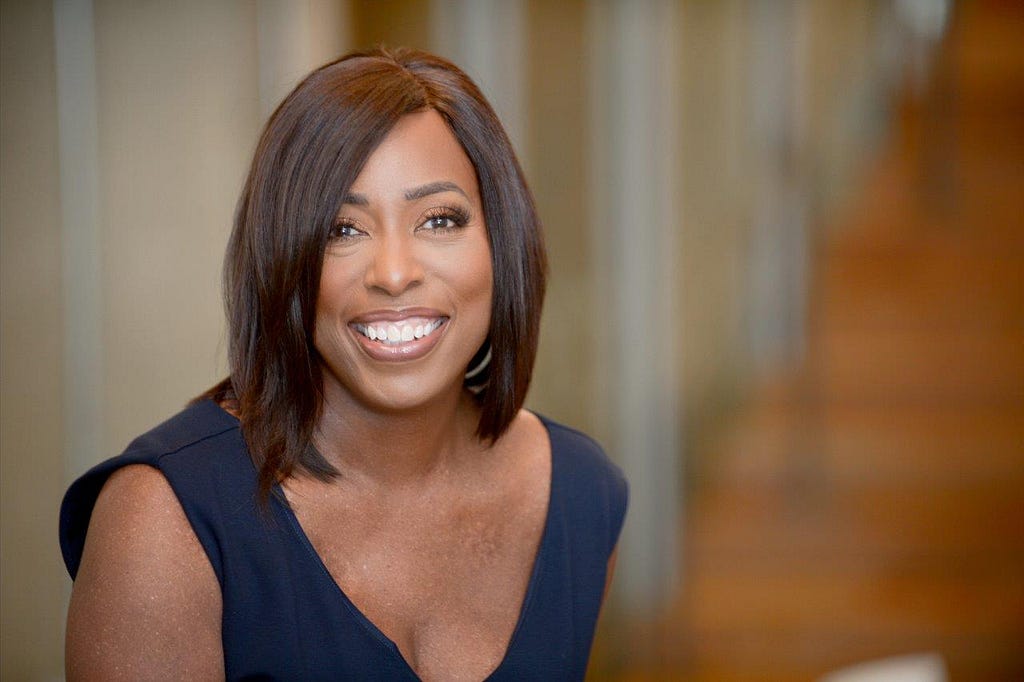
First and foremost, we as women can stop blaming ourselves for believing the lies society has told us about ourselves. Both the beauty of our bodies and the brilliance of our brains have value. The idea that we must pick one or the other has always been a false choice.
I had the pleasure of interviewing Amelia Ransom. Amelia is the Sr. Director of Engagement and Diversity at Avalara. She has over 20 years of expertise building strategy and delivering impactful results in business operations and human resources. Prior to her current role, Amelia spent 26 years at Nordstrom where she held team, regional and enterprise-wide leadership positions including Store Manager, Corporate Learning and Development Director, Director of Talent and VP Diversity Affairs. Her areas of expertise include leadership development, early in career and millennial engagement, executive level mentorship and advisement and diversity and inclusion strategy and execution. Amelia serves on the boards of the Seattle Metropolitan Chamber of Commerce, Seattle Goodwill Industries, The Institute for Sustainable Diversity and Inclusion and Building Changes. She is also on the advisory board for the Seattle chapter of the Association of Latino Professionals in America (ALPFA).
Thank you so much for joining us! Can you tell us the “backstory” that brought you to your career path?
I haven’t always been in HR. I’ve had roles in the business as a department and store manager. I believe that my success in HR has come from my ability to understand and drive business initiatives and lead large teams and connect each to the other.
Can you share the most interesting story that happened to you since you began this career?
Oh, there are so many stories, most of them are covered by confidentiality agreements ?. One story that comes to mind is when I was in a regional Diversity and Inclusion (D&I) role early on in my career. I was buoyed by the confidence of a strong performance review and I told my boss that I wanted my next job to be her job. Though flattered, she informed me that I wasn’t going to be a candidate for that job without more experience in the business. I was crushed and I didn’t understand why. She asked me if she had ever lied to me or steered me wrong and asked for my trust as she supported me in getting a role as a store manager.
Fast forward, I was eventually promoted to her role after being a store manager and it only took me a few days in the role to know she was right all along. I needed the Profit and Loss (P&L) experience, needed to be accountable for a large team and a large volume in order to think broadly enough build and deliver D&I strategies and initiatives for the entire company. And yes, I’ve thanked her again and again!
Can you share a story about the funniest or most interesting mistake you made when you were first starting? Can you tell us what lesson you learned from that?
In order to impress the interviewer at my first job, I carried a fancy briefcase I’d received as a graduation gift. There was absolutely NOTHING in it. So, imagine the hiring manager’s surprise when I said I didn’t have a copy of my resume to share with her. And then imagine my surprise when she showed me a bit of true grace by offering me the job anyway. I learned to be prepared and to offer others the same grace that was afforded to me. Of course, I also learned to come prepared to the interview!
Ok let’s jump to the main focus of our interview. Even in 2019, women still earn about 80 cents for every dollar a man makes. Can you explain three of the main factors that are causing the wage gap?
Well let’s be clear, that’s the pay gap for white women. The pay gap for black, Native and Latinx women is 61 cents, 58 cents and 53 cents, respectively. There’s one overarching factor here — sexism. Empirical data supports this. Sexism plays a role in the lives of women who work inside and outside the home, for the scholarly and the street smart, and it’s happening all around the world. Focusing all our attention on things like negotiating skills and whether we’re “likeable” will not solve this. Sexism is the root, so let’s fix the real problem.
Can you share with our readers what your work is doing to help close the gender wage gap?
My work is building organizational and operational muscle in the areas of inclusion and diversity. I’m not doing what I call “headline” work. I’m not trying to make a splash, but rather a difference. We are doing this through our own Employee Resource Groups, particularly our Women’s group, to hold us accountable to being the company we aspire to be. We’re teaching leaders how to lead diverse teams and doing our own internal wage gap study.

Can you recommend 5 things that need to be done on a broader societal level to close the gender wage gap. Please share a story or example for each.
First and foremost, we as women can stop blaming ourselves for believing the lies society has told us about ourselves. Both the beauty of our bodies and the brilliance of our brains have value. The idea that we must pick one or the other has always been a false choice.
We have to call out the inconsistencies when we see them. I’ve listened to men help their daughters negotiate great salaries and then be upset when their female employees use those same negotiating tactics.
We start devaluing girls’ brains early in life. Studies have shown that girls are still steered away from STEM subjects in school. What if the cure for cancer is in the brain of a girl whose teacher thinks she doesn’t belong in the magnet science program because it’s hard? Society is far worse off, and the opportunity gap widens because of this type of thinking.
Bottom line: Frederick Douglass said it best, “Power concedes nothing without a demand.” Women have the numbers and the power to demand an equal seat at the table or build their own.
If you could inspire a movement that would bring the most amount of good to the most amount of people, what would that be? You never know what your idea can trigger. 🙂
I want us to make decisions based on facts not fear. We as humans have a propensity to be afraid of what we don’t understand or haven’t experienced. So, knowing that about ourselves, let’s commit to learning about cultures, countries, and people that we may not be familiar with. Information is more readily available than it’s ever been — let’s use it.
Can you please give us your favorite “Life Lesson Quote”? Can you share how that was relevant to you in your life?
As a child, whenever I told my mom that I couldn’t wait until a special day — birthday, Christmas, etc., she’d warn me “not to wish my life away.” What she meant was if I just lived waiting until some big moment or day, I’d miss all the special times that happen in-between. I’ve found the most special memories I have aren’t from holidays or anniversaries, but from random sing-a-longs on the way to the grocery store or a corn on the cob eating contest at the beach. Yes, both of these things really happened!
We are very blessed that some of the biggest names in Business, VC funding, Sports, and Entertainment read this column. Is there a person in the world, or in the US whom you would love to have a private breakfast or lunch with, and why? He or she might see this, especially if we tag them. 🙂
Venus Williams and Serena Williams are great examples of what we’ve been talking about in eliminating the pay gap. They could have easily taken all of their wins on the court and gone home, but instead they fought for equal pay on the court — even for those who actively rooted against them. They’ve fought sexism and racism with more class and grace than we deserve. They’re my besties in my head — we grew up not far from one another, we like to win, and we use our platforms to speak truth to power. I don’t need to have breakfast with them, but the next time they hear someone screaming extra loud for them from the stands, I hope they’ll know it’s me!
Thank you for all of these great insights!
“5 Things That Can Be Done to Close the Gender Wage Gap”, with Amelia Ransom and Candice Georgiadis was originally published in Authority Magazine on Medium, where people are continuing the conversation by highlighting and responding to this story.

